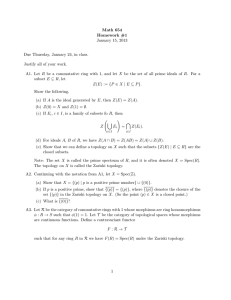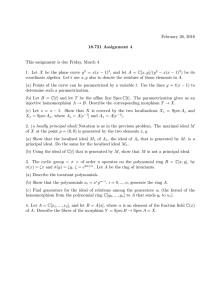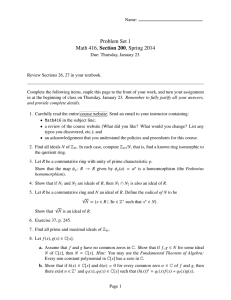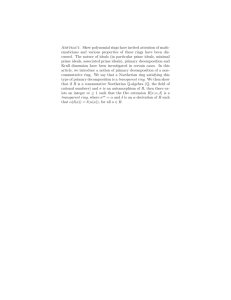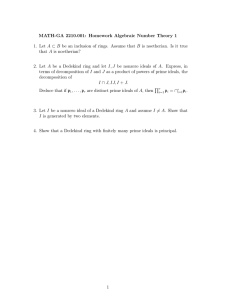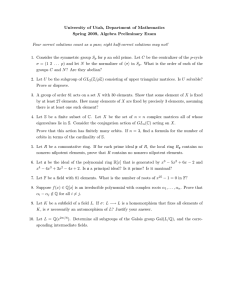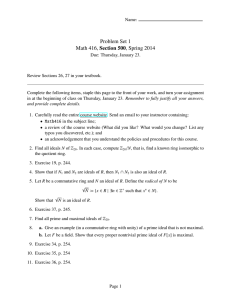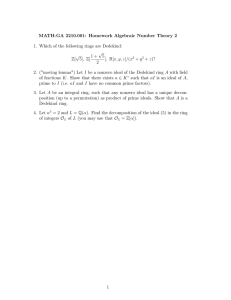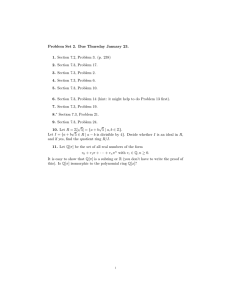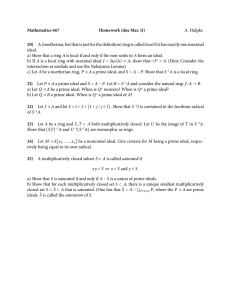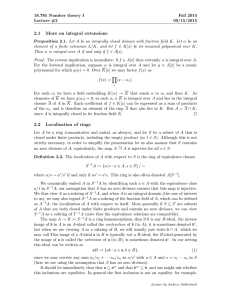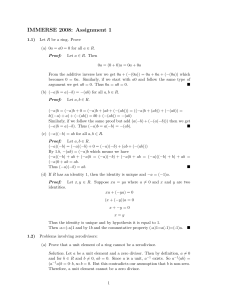Mathematics 667 Homework (due Feb. 12) 4) A. Hulpke
advertisement
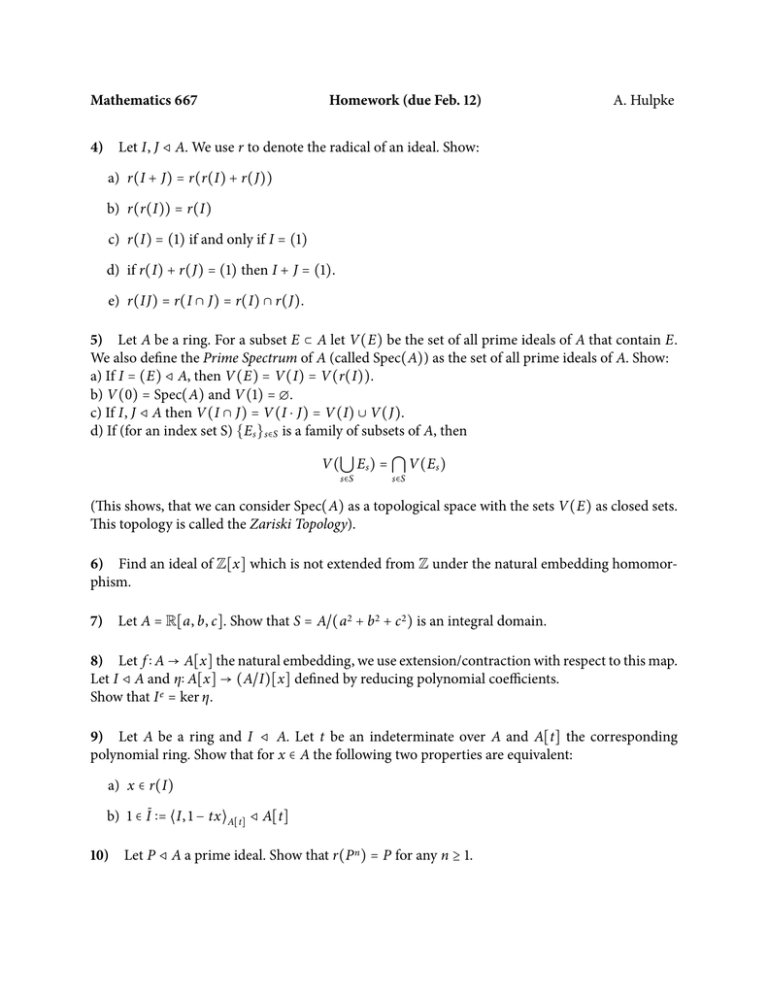
Mathematics 667
Homework (due Feb. 12)
A. Hulpke
4) Let I, J ⊲ A. We use r to denote the radical of an ideal. Show:
a) r(I + J) = r(r(I) + r(J))
b) r(r(I)) = r(I)
c) r(I) = (1) if and only if I = (1)
d) if r(I) + r(J) = (1) then I + J = (1).
e) r(IJ) = r(I ∩ J) = r(I) ∩ r(J).
5) Let A be a ring. For a subset E ⊂ A let V (E) be the set of all prime ideals of A that contain E.
We also define the Prime Spectrum of A (called Spec(A)) as the set of all prime ideals of A. Show:
a) If I = (E) ⊲ A, then V (E) = V (I) = V (r(I)).
b) V (0) = Spec(A) and V (1) = ∅.
c) If I, J ⊲ A then V (I ∩ J) = V (I ⋅ J) = V (I) ∪ V (J).
d) If (for an index set S) {Es }s∈S is a family of subsets of A, then
V (⋃ Es ) = ⋂ V (Es )
s∈S
s∈S
(This shows, that we can consider Spec(A) as a topological space with the sets V (E) as closed sets.
This topology is called the Zariski Topology).
6) Find an ideal of Z[x] which is not extended from Z under the natural embedding homomorphism.
7) Let A = R[a, b, c]. Show that S = A/(a2 + b 2 + c 2 ) is an integral domain.
8) Let f ∶ A → A[x] the natural embedding, we use extension/contraction with respect to this map.
Let I ⊲ A and η∶ A[x] → (A/I)[x] defined by reducing polynomial coefficients.
Show that I e = ker η.
9) Let A be a ring and I ⊲ A. Let t be an indeterminate over A and A[t] the corresponding
polynomial ring. Show that for x ∈ A the following two properties are equivalent:
a) x ∈ r(I)
b) 1 ∈ Ī ∶= ⟨I, 1 − tx⟩A[t] ⊲ A[t]
10) Let P ⊲ A a prime ideal. Show that r(P n ) = P for any n ≥ 1.
